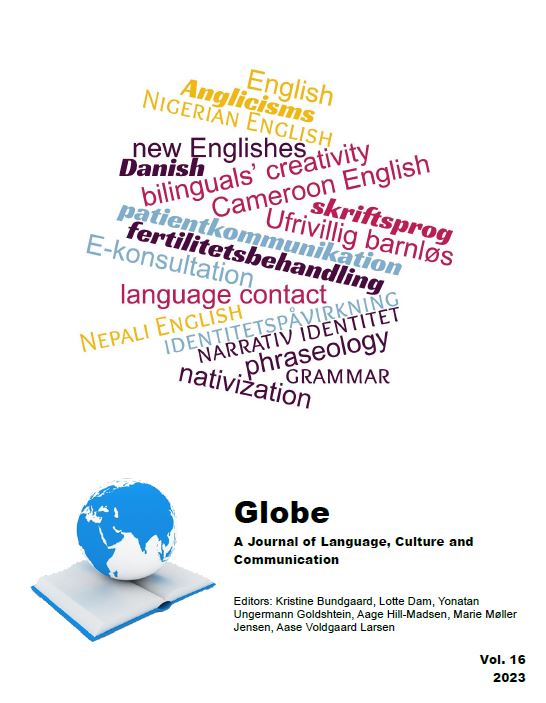Features of the grammar of Cameroon English and Nigerian English: Corpus evidence
DOI:
https://doi.org/10.54337/ojs.globe.v16i.7788Abstract
Cameroon English and Nigerian English are varieties of English which result from the spread of the English language around the world. These two new Englishes, which have grown in neighbouring countries, are gradually being described for subsequent codification. In the domain of grammar, several studies have been carried out to highlight the features that characterise each variety. However, analytical comparisons have hardly been made to determine how similar or different they can be, given that they are both categorised as West African Englishes, their populations share much in common and they communicate on a daily basis. This paper, therefore, proposes a comparative and contrastive description of the grammar of these varieties. The review of previous studies and the exploration of the Corpus of Cameroon English (CCE) and the Nigerian component of the International Corpus of English (ICE-Nigeria) reveal that both varieties are more similar than different, and features of indigenisation are attested at the morphological as well as syntactic levels. For the sake of simplification, and failure to manage syntactic traces (Mbangwana and Sala 2009), questionsand passivisation are restructured, and pronoun reduplication is resorted to fill in the empty slot created by a displaced constituent. While subjectless and verbless sentences and the reflexive use of reciprocal pronouns are specific to Nigerian English, when-adverbials, that-adverbials, and that-complements of ‘abuse verbs’ rather characterise the Cameroonian variety.
Downloads
Published
Issue
Section
License
Articles published in Globe: A Journal of Language, Culture and Communication are following the license Creative Commons Attribution-NonCommercial-NoDerivs 3.0 Unported (CC BY-NC-ND 3.0). Authors retain copyright and grant the journal right of first publication with the work simultaneously licensed under a Creative Commons Attribution License: Attribution - NonCommercial - NoDerivs (by-nc-nd). Further information about Creative Commons


